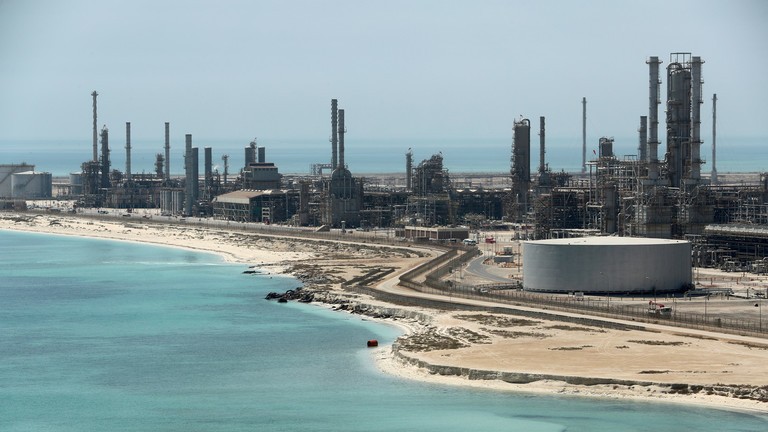The Saudi-led coalition will not leave any resources, places or islands in Yemen unless its resources are stolen or controlled by weapons, ignoring the suffering of Yemen, which has been exposed to a fierce war for seven years.
According to Saudi leaks Ammar al-Adrawi, chief executive of the Yemeni Oil Company, confirmed that the occupier countries, led by Saudi Arabia, were stealing Yemeni oil and depositing the money in the National Bank.
Al-Adri said in a statement that Saudi Arabia was considering Yemeni oil day and night, regardless of the needs of a country plagued by war, siege and disease.
He explained that the Yemenis are suffering from a shortage of oil derivatives in Shabwa and various provinces, while thousands of tons of Yemeni crude oil are being looted.
Al-Adrawi added: “Since the beginning of this year, the aggressor forces have released only 4% of the amount needed by the Yemeni people.”
He noted that the aggressor countries, including Saudi Arabia, prevented the import of gas from Ma’rib and also prevented the entry of oil-derived ships that had been imported from the livelihood of the people of this continent.
An official source in the Yemeni Ministry of Oil and Mines confirmed that the invading forces are preparing to loot about 106,000 tons of crude oil, or about 950,000 barrels of crude oil.
The source said that the giant SARASOTAA tanker has reached to the port of “Bir Ali” in the Radom region of Shabwa province from South Korea.
He noted that the tanker had anchored from the port of Fujairah in the United Arab Emirates, which has been on the coast of the UAE since the beginning of the year, with the help of a tug of war.
He explained that the value of the looted oil to be transported from the port of Bir Ali is more than $ 69 million, which is equivalent to 68.5 billion rials in Yemeni rials.
Late last year, another economist said that Washington and Riyadh had bribed the former Yemeni government to refrain from oil exploration activities, adding that Yemen had more oil reserves than the entire Persian Gulf region.
“Saudi Arabia has signed a secret agreement with the United States over the past 30 years to prevent Yemen from using its oil reserves,” Hassan Ali al-Suniri told APS.
“Scientific research and assessments by international drilling companies show that Yemen’s oil reserves are more than the total reserves of all the countries in the Persian Gulf,” he added.
Al-Suniri added that Yemen has abundant oil reserves in the Marib, Al-Jawf, Shabwa and Hadramaut areas.
An international organization has previously reported that Saudi Arabia and the United Arab Emirates have strengthened their strategic position in eastern Yemen and its islands as part of their criminal war in the country for years.
The Brookings Institution said that as the peace process between the Houthi rebels and the coalition in the war in Yemen faltered, Saudi Arabia and the United Arab Emirates have strengthened their power in strategic parts of the country.
Saudi Minister of Agriculture reveals the amount of food waste in the Kingdom annually
The institute said it was unlikely that Saudi Arabia and the UAE would abandon their achievements without significant international pressure.
A study conducted by the institute states: The Saudis focused their attention on the eastern province or Al-Mehra province, the second largest province in Yemen and adjacent to the kingdom of Oman.
Al-Mahra, with a population of 300,000, is far from the Houthi-controlled territory in northern Yemen.
Since 2017, the Saudis have gradually taken control of Mahra, occupying the capital and port, and controlling border posts with Oman.
Saudi forces now control the province, and Human Rights Watch reports that the Saudis and allied local tribes have used force, torture, and arbitrary detention to suppress any opposition to their occupation.
Saudi Arabia currently has 20 bases and checkpoints in Al-Mohra province.
The capture of Al-Mohra gives Saudi Arabia direct access to the Indian Ocean. Riyadh plans to build an oil pipeline from its eastern region to the sea via al-Mehra.
This reduces Saudi Arabia’s dependence on the Strait of Hormuz for oil exports and reduces Iran’s possible influence in Riyadh.













